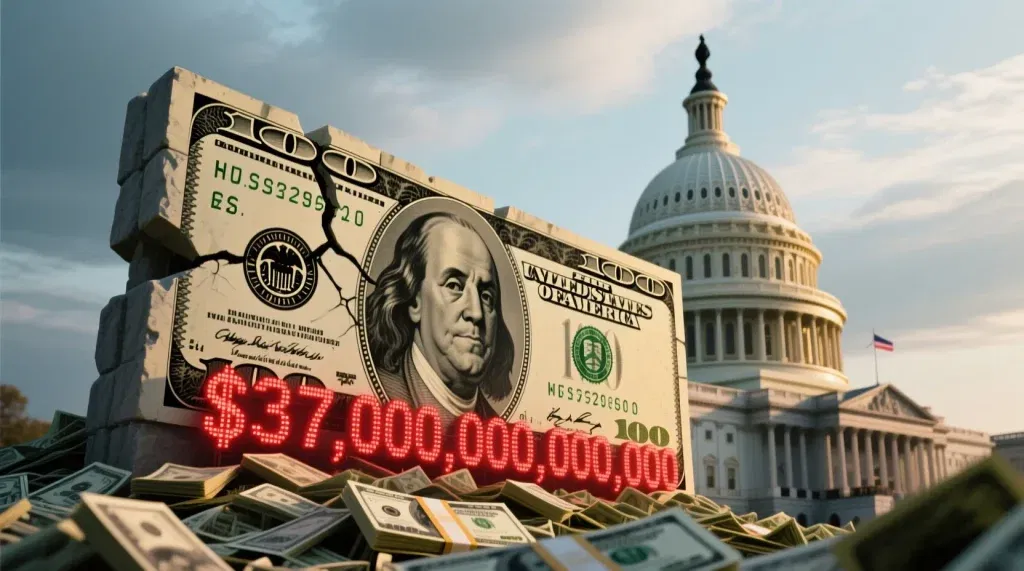In 1828, a proposal came before the US House of Representatives to provide some money to the widow of a deceased naval officer.
The woman’s husband had died in service to the country, and tragically she had been left penniless. So the request wasn’t outrageous—just a small pension to help the bereaved widow of an American hero get by.
By modern standards, the request would be a rounding error. But to one Congressman from Tennessee, it was a dangerous precedent.
That Congressman’s name was David Crockett—as in, the war hero, frontiersman, and legend in the coonskin cap who would later die at the Alamo.
Congressman Davy Crockett stood up and agreed that the cause was noble. The poor widow should not be left alone. However, he insisted, her plight was not the taxpayers’ problem and therefore Congress should not give her federal funds.
Davy Crockett didn’t lack compassion. In fact, he offered a solution. He proposed that every Congressman donate one week’s salary from his own pocket. And that would be more than enough to support the widow without violating the Constitution.
According to the story that was written a few decades later, Crockett then passed the hat. And absolutely no one contributed. Apparently the widow’s cause was only worthwhile if Congress was spending other people’s money, and not their own.
If Davy Crockett’s ethos had lived on, America would not be in such dire fiscal circumstances today.
Unfortunately, just as in 1828, today’s members of Congress too easily spend taxpayer money. Everything is important. Everything must be funded. There is virtually no restraint. And the consequences are obvious.
Last week the Treasury Department published its annual finances for Fiscal Year 2025 (which ended a few weeks ago on September 30).
Perhaps the most glaring concern is that gross interest on the US national debt reached an astonishing $1.216 TRILLION, up 7.5% from last year.
This is noteworthy, because the total deficit for the year (i.e. the difference between what Congress spends and what they collect in tax revenue) was about $1.8 trillion.
So roughly two-thirds of the FY25 annual deficit, i.e. the new debt that America had to borrow, went to pay interest on the money they already borrowed.
Let that sink in for a moment.
The US national debt is growing at an explosive rate. The debt crossed $37 trillion for the first time on August 11, 2025. Just ten weeks later the debt is about to hit $38 trillion.
That’s an average $100 billion per week added to the national debt. Naturally the annual interest bill is rising rapidly as well.
So are Social Security and Medicare expenditures, both up about 8% from fiscal year 2024.
FY2025 tax revenue was up by around 6%, which is good. And in fairness, the President’s tariffs brought in around $200 billion— though they might have to give that money back if the Supreme Court rules the tariffs to be illegal.
But overall, the largest expenses (specifically Social Security, Medicare, and interest on the debt) are rising much faster than tax revenue. And that’s a gargantuan problem.
Fixing it, in theory, is fairly straightforward.
The key metric to monitor (and improve) is America’s debt-to-GDP ratio, i.e. the size of the national debt relative to the size of the economy.
With a $38 trillion debt and a $30.5 trillion GDP, the ratio is currently about 125%. This is essentially an all-time high… even higher than the 120% debt-to-GDP ratio that America reached during the 1940s when the country borrowed extensively to fund World War II.
Bringing the debt-to-GDP down means reducing the debt (or at least slowing down the debt’s rapid growth), while simultaneously increasing economic growth.
The government could easily help grow the economy if they slashed red tape; the US Code of Federal Regulations contains hundreds of thousands of pages of productivity-killing rules that slow down innovation and business formation.
To paraphrase what Elon once quipped, it shouldn’t take longer to apply for the rocket launch permit than it took to design the rocket in the first place.
The other side of this coin is spending cuts. And the low hanging fruit is hundreds of billions of dollars of unconscionable waste in the federal government. Yet when Elon tried to trim the fat he was chased out of town.
Why?
Naturally all politicians pretend to be anti-waste. But in reality they have an incentive to waste taxpayer funds… as long those funds end up in their state and district.
Politicians believe (and perhaps it’s true) that more federal money in their districts increases their chances of being re-elected.
This incentive structure is wrong; politicians are rewarded when they waste money and indebt the nation. They are almost never punished.
Plus much of the waste benefits their donors, special interest groups, and secret projects that are funded through obscure federal programs.
So, again, the system has too many built-in incentives for more spending, not less spending.
There are other obvious solutions; Social Security’s major trust fund will run out of money in about 8 years (according to the program’s own trustees). It needs to be reformed. There’s no question.
And yet no one in Congress has the political courage to do so. The incentive structure encourages them to ignore the problem and kick the can down the road.
Perhaps the biggest challenge is that voters continue to elect some of the dumbest and most corrupt human beings on the planet to represent them in Congress.
A century ago, Davy Crockett stood up and defended taxpayers. Today, another Crockett— Jasmine Crockett of the State of Texas— idiotically claims that “it is not a criminal violation to enter the country illegally”.
Following up, after an illegal migrant brutally raped and murdered an American on US soil, Crockett referred to the victim as “a random dead person”, yet later insisted that “80% of the most violent crimes in this country are [committed by] white supremacists”.
This weekend she attended multiple “No Kings Day”, aka “No Common Sense Day” protests and promptly blamed all the country’s problems— from failing schools to rising crime— on Donald Trump.
Bizarrely, Ms. Crockett is a rising star… either because the election is completely rigged, or the people who vote for her are clueless and deranged. Either way it’s bad.
All of this is to explain why, as much as I hope that reason prevails and this debt problem is solved, I’m not holding my breath. And that’s why it’s so important to have a Plan B.








